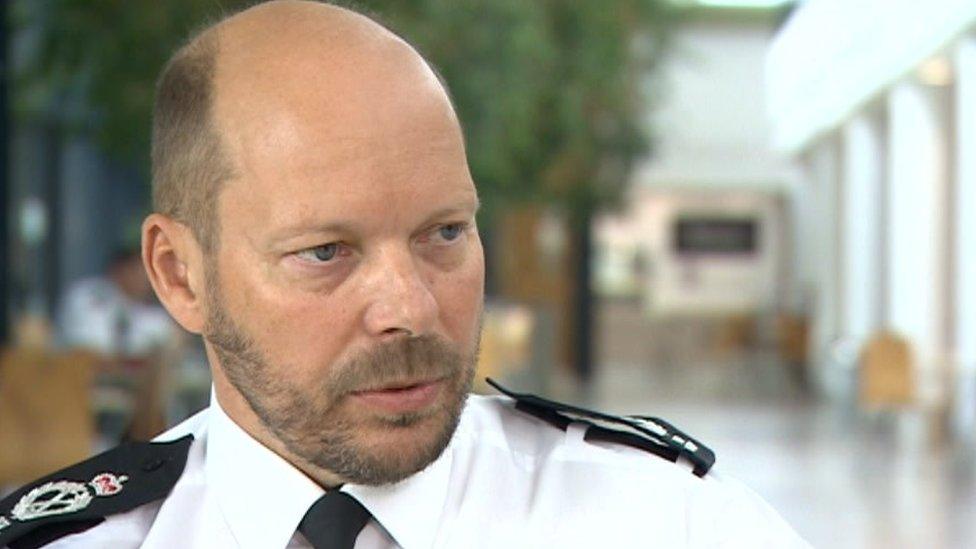Gloucestershire Police almost four times more likely to stop black person
- Published
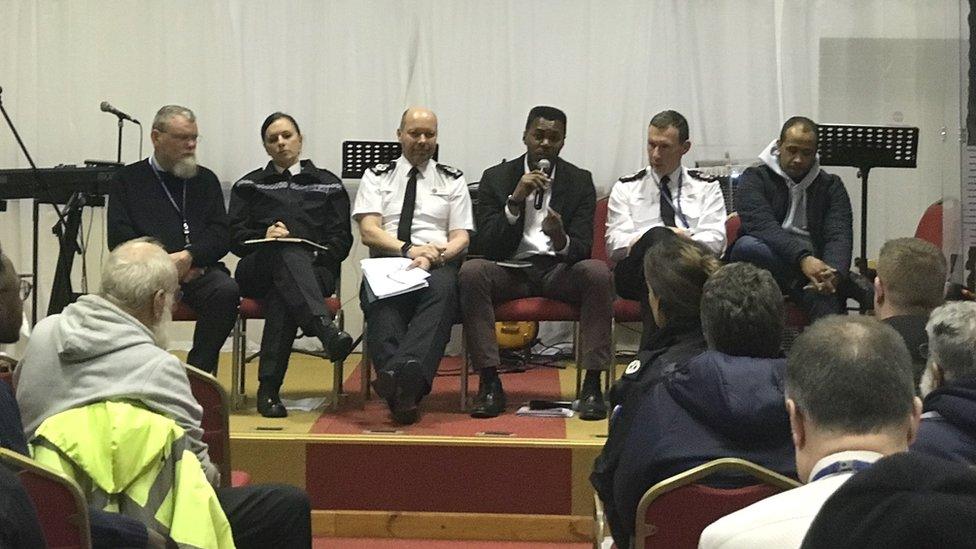
The Community Legitimacy Panel was set up following the Black Lives Matter protests to hold police accountable
Black people in Gloucestershire are almost four times more likely to be stopped by police than white people, recent figures have revealed.
The figures were referred to during a meeting in Tredworth where police were questioned on their Race Action Plan.
Police representatives said they are looking to reduce the number, which is lower than the national average.
Gloucestershire Police chief constable Rod Hansen said it is an issue they are working "incredibly hard on".
"I don't think in all of my time in policing I've ever heard an appropriate explanation for why there's disproportionality," he said.
"It's a very live and contentious issue for policing. Yes there's some positive signs in the statistics but quite frankly until it's eradicated it's not going to be good enough for us or our communities in particular."
During the meeting it was revealed figures from November showed a black person was 3.8 times more likely to be stopped and searched than a white person. The national average, from figures in March 2022, is 4.8.
The meeting was also told Gloucestershire Police will no longer stop people because they smell cannabis. The reason being it is very difficult to prove an officer smelt anything.
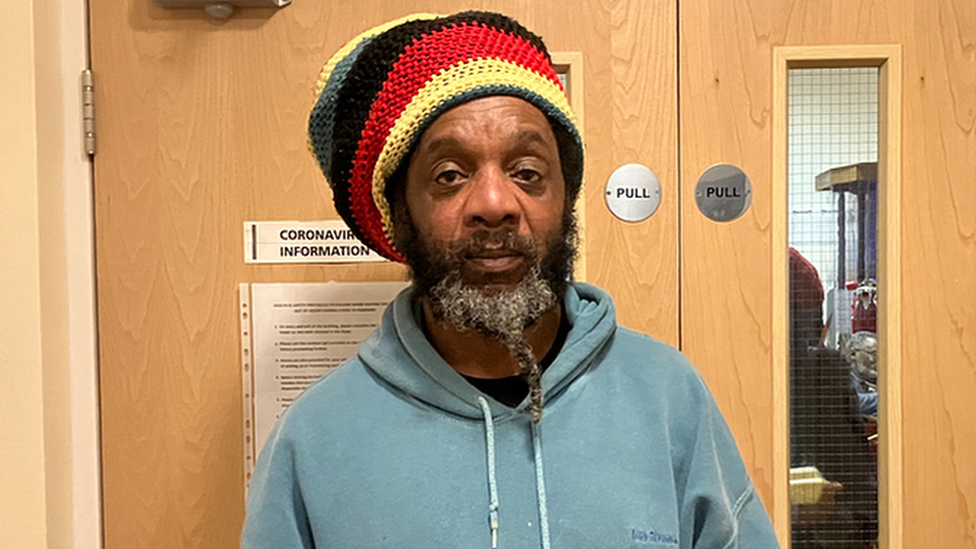
Derrick Mclean questioned the independence of the police complaints process
Derrick Mclean, who lives in Stroud and works in Gloucester, attended the meeting.
He said: "Nothing really surprises me when it comes to these sort of issues, we've been dealing with for hundreds and hundreds of years.
"What's getting better is at least we're in discussion."
The force has now implemented a policy that all stop and searches must be recorded on body cam, revealing that currently about 88% of times officers stop someone is captured on body cam footage.
The meeting was also told that Gloucestershire Police is working towards better diversity within the force, but that it is still lagging behind population figures - with 6.9% of people being from a minority and only 4% being employed by police.
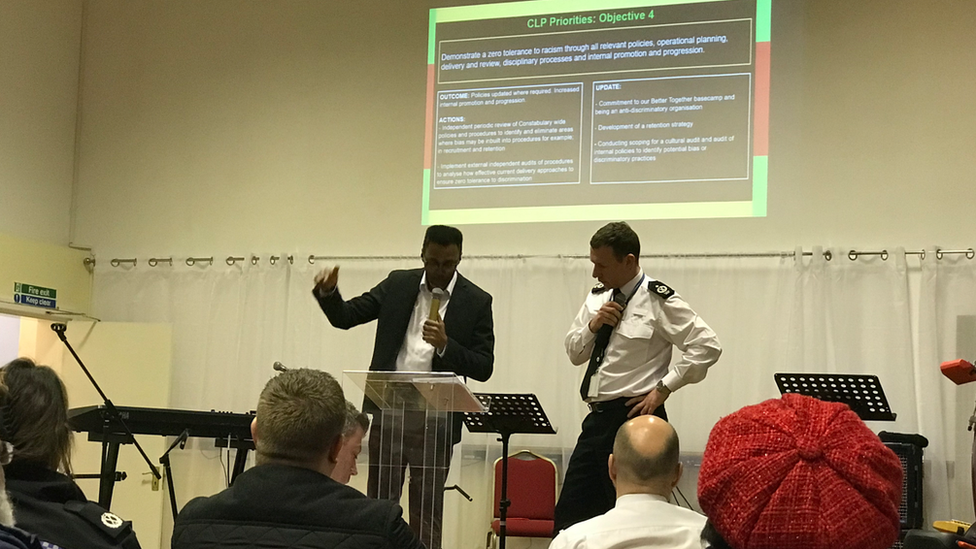
The Community Legitimacy Panel updated the public on the work it has been doing with the police
The police committed to setting up a focus group as members of the community felt concerned about officers stopping lone black women.
Use of tasers on people with mental health problems was also discussed with the force inviting the public to view their taser training.
It also plans to record ethnicity data at traffic stops, something which has not been carried out previously.
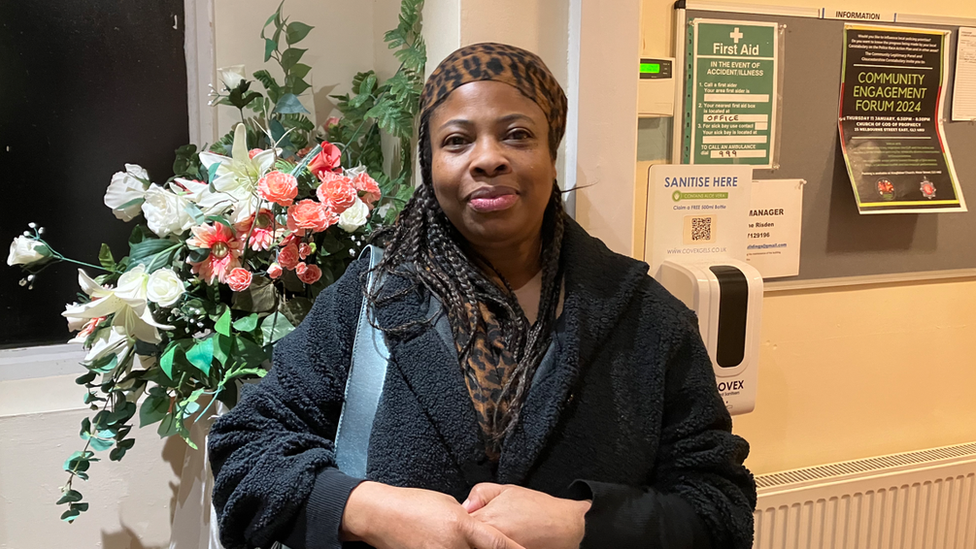
Valerie Simms runs an arts diversity interest company in Gloucester
Members of the public questioned how to get more young people involved in the meetings with police.
Valerie Simms asked what the police were doing to make sure young people were involved in the engagement process.
"We need some interaction to then help steer us in the right way," she said.
Mr Hansen said the meeting had been a "positive event" and that it was important police hear peoples "lived experiences".
He added that the force will "embrace every aspect and our very best to make progress".

Follow BBC West on Facebook, external, X, external and Instagram, external. Send your story ideas to: bristol@bbc.co.uk , external
- Published24 August 2023
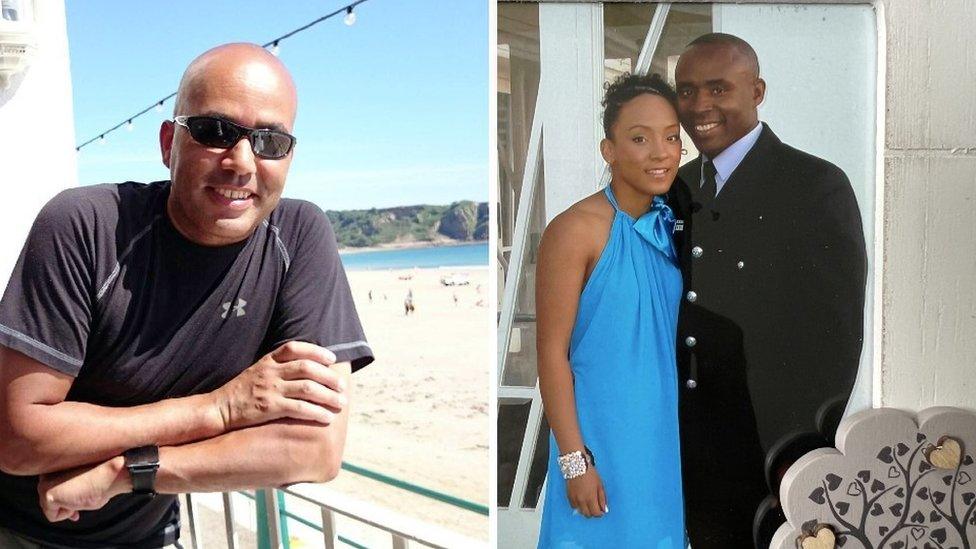
- Published6 March 2023
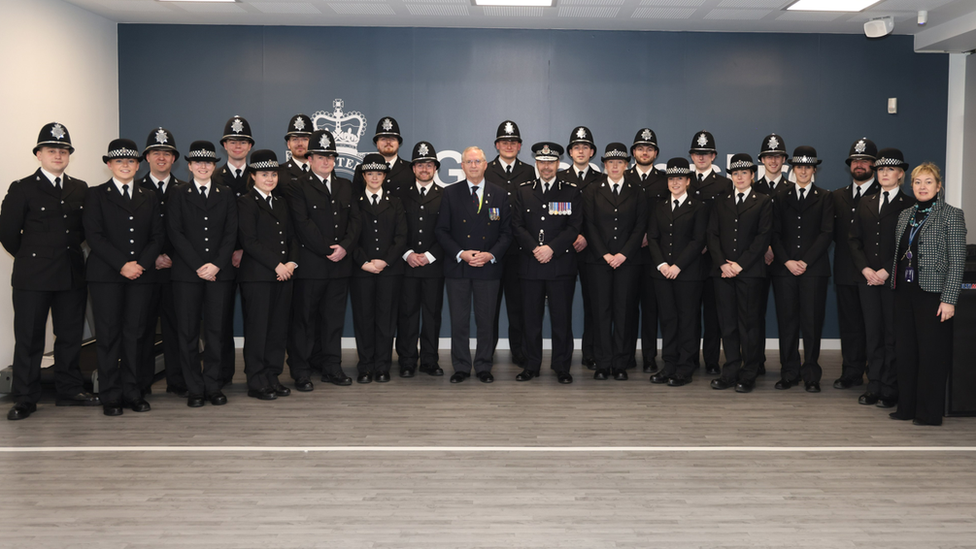
- Published26 May 2022
